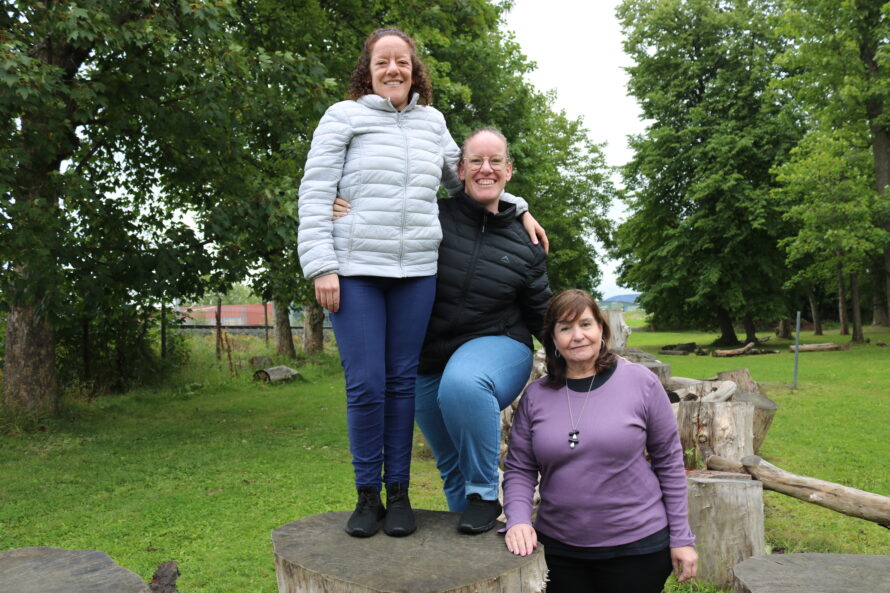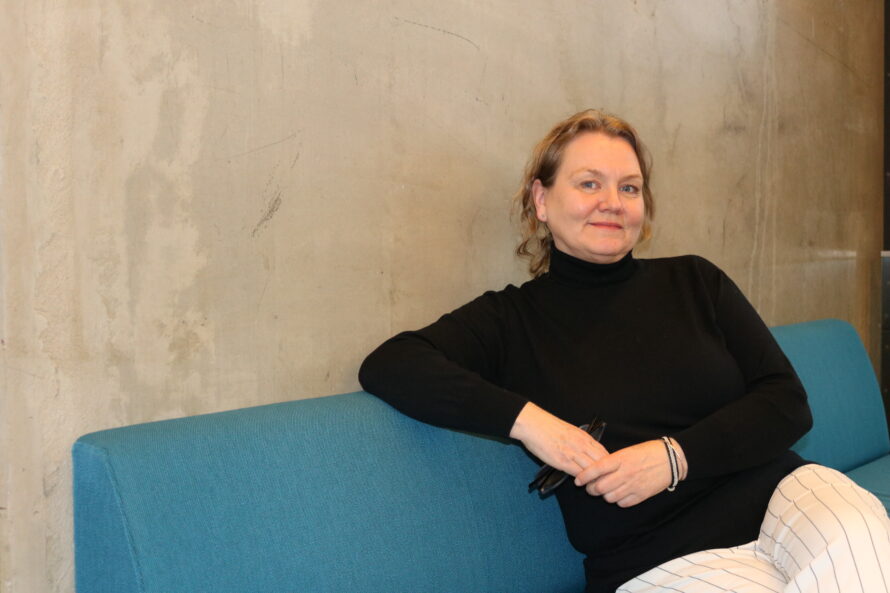DMMH and STADIO have collaborated in various ways for over 20 years. The current focus is the project “Learning to Lead,” funded through the UTFORSK program by the Directorate for Higher Education and Competence.
Launched in 2024, the project aims to develop expertise in leadership for social sustainability, highlighting diversity and inclusion, in kindergartens across multicultural societies. A key component is the development of new teaching resources—both digital and physical—that can be used by students in teacher education across borders.
Groundbreaking work
This autumn, three South African researchers visited DMMH and Ilabekken Kindergarten, which also forms part of the project. Stacy Schneider gave a guest lecture at the university, and together with Kerri-Lee Schneider and Dr Marinda Swart, they held numerous meetings with the Norwegian project team, consisting of Gjertrud Stordal, Gry Mette Haugen, Sine B. Hansen, Birgitte Ljunggren, Line-Marie W. Hatle, Paal E. Salvesen, Anita Lie Kvien, Ingunn Elder, Arnt Nordli, and Marit Pettersen.
Together, DMMH and STADIO have developed three interconnected work packages:
• Student exchange and teaching
• Research
• Joint competence development
Student Exchange and teaching
Student exchange is a major part of Learning to Lead, including teaching on leadership for diversity and inclusion. Bachelor students have the opportunity to spend three months abroad at the partner institutions, while students in the Master’s program in Kindergarten Leadership can undertake a four-week field study as part of their thesis. Additionally, the collaboration has enabled students in the Master’s program in Special Education to complete a four-week practicum in a kindergarten or school in South Africa.
- Student exchange is a powerful tool, says Kerri-Lee Schneider. - Students learn to accept complex realities, understand how definitions are shaped by personal and cultural backgrounds, and recognize that others may see things differently. At the same time, exchange offers experiences that highlight commonalities and shared understandings across different contexts.
The researchers emphasize the importance of relationships in the project.
- Relationships build trust, enlighten, and empower. A big part of learning is about how we perceive others—how we shift attitudes and perspectives, how we teach, how we engage. Language use is also crucial. We work with inclusive language, helping students understand how their words and phrasing can include or exclude.

- One of the most striking impressions was observing children at play. In South Africa, teachers control children’s play and tell them what and where they can play. What we saw in Trondheim was completely different. There’s a different power dynamic between adults and children, and a very different view of children. In a Norwegian kindergarten, children are seen as more independent, whereas at home they’re considered very dependent on adults, they explain.
- The view of learning in our two countries is also very different—children play a more active role in Norway, says Dr Swart. - Here, it’s not about being cautious—it’s about testing boundaries. I would instinctively tell children to be careful during play, but here they’re allowed to explore their limits. It’s very enlightening. When children take responsibility and make their own decisions, we see what they’re truly capable of.

Research
- We must develop knowledge together and share ownership, says the South African project team.
- A key component of the collaboration is joint teaching and supervision of students in the Master’s program in Kindergarten Leadership. While students are offered exchange opportunities in Cape Town and write their thesis as part of the stay, we develop knowledge about kindergarten leadership and the role of the supervisor through international collaboration, explains Gjertrud Stordal.
Several articles will be written as part of the project. One research area is students’ experiences and outcomes from exchange visits in each other’s countries. Another is how international collaboration contributes to competence development for project participants from both educational institutions.
Joint Competence Development
As part of the project, a digital online course has been developed to support students’ learning and development of leadership skills for diversity and inclusion during their exchange stay, with joint teaching by faculty from both institutions. The final component is the development and trial of a virtual exchange offering for students who are unable to travel physically.
In addition, each semester, four workshops are held, bringing together all project participants. These sessions allow participants to share perspectives and experiences on various topics and discuss key concepts central to the project—particularly those related to leadership for diversity and inclusion. Guest lecturers are often invited to provide new insights and perspectives that the project can learn from.
